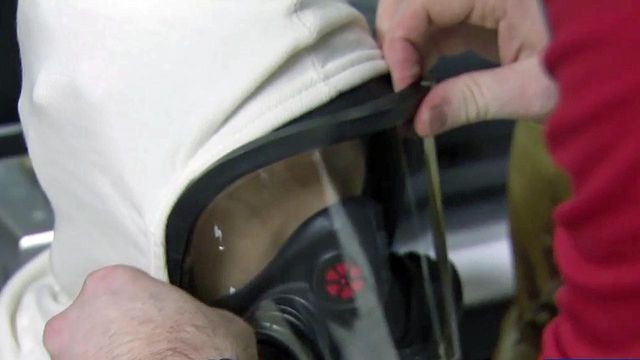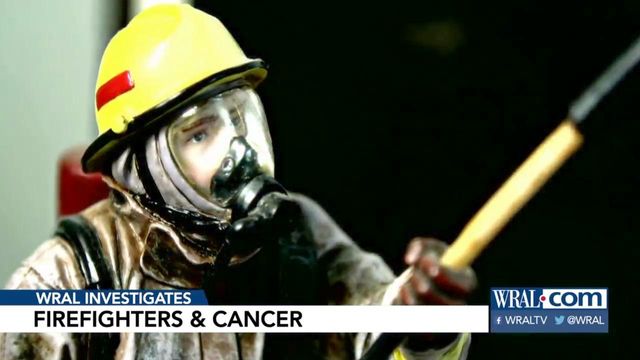Local nonprofit holds fundraiser for universal firefighter safety
Firefighters wear a lot of protective gear, but one of the most important pieces is the hood that goes under their helmet. For years firefighters have worn thin, single-layer hoods that didn't block soot and smoke from reaching their skin. Scientists say this is contributing to higher rates of cancer among firefighters.
Posted — UpdatedFor years firefighters have worn thin, single-layer hoods that didn't block soot and smoke from reaching their skin. Scientists say this is contributing to higher rates of cancer among firefighters.
Now, engineers with North Carolina State University's Wilson School of Textiles are working on a solution - a triple-layer model.
"So, instead of just blocking the fire, how do we block the soot and smoke and everything else from getting to their skin?" said Bryan Ormond, an engineering professor.
Since 2016, researchers at NC State have been working under a federal grant on standards for an improved fire hood.
"So we can put this in there and it's going to stop all the particles," Ormond said.
"It actually seals around your neck," said Allen Williford, a Wake County firefighter.
The new hoods aren't cheap. They can cost more than three times what the basic ones cost.
Williford's nonprofit, "Love is Bald," is holding a fundraiser on Saturday to raise money to help departments buy them.
"All the proceeds from this event will go towards buying smaller fire departments (these hoods) because we find out they can't afford it in their budget because they are so pricey," he said.
One of the new hoods was set on fire as part of an experiment.
"You can kind of see the damage that occurs and the material on the outside of this is known to shrink up, so you can see the shrinking there. But for the most part on the inside its fairly intact," Williford said.
The new hoods cost about $100.
Related Topics
• Credits
Copyright 2024 by Capitol Broadcasting Company. All rights reserved. This material may not be published, broadcast, rewritten or redistributed.






